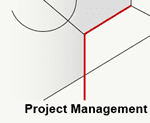
In Part 1 of this article series, we explored a simplified project management process using a phase/gate structure that enables a robust project planning and execution thought process. Now let’s identify some deliverables within each of the phases.
These deliverables would be required and reviewed at each of the gates. Below is a brief description of each:







